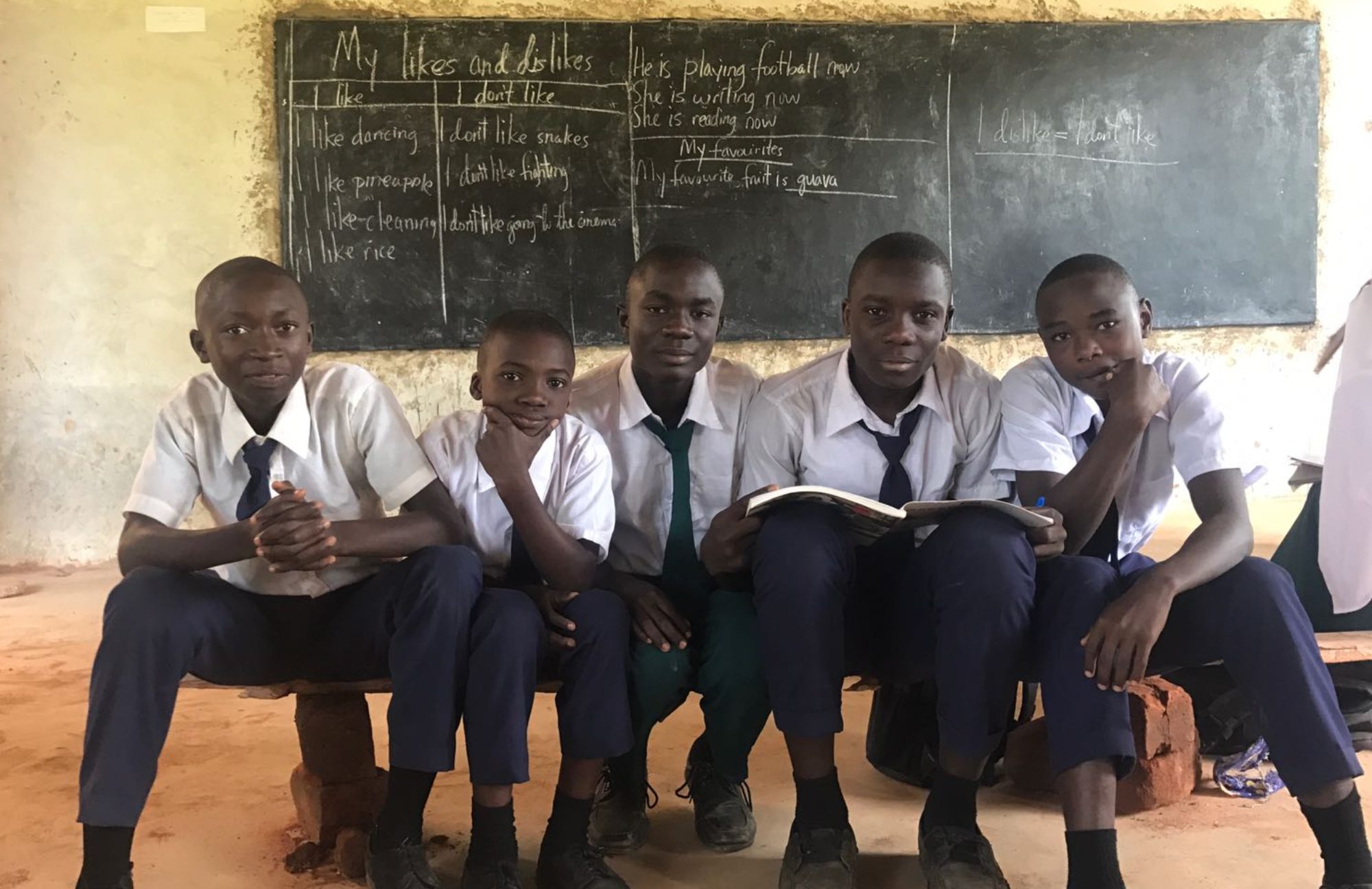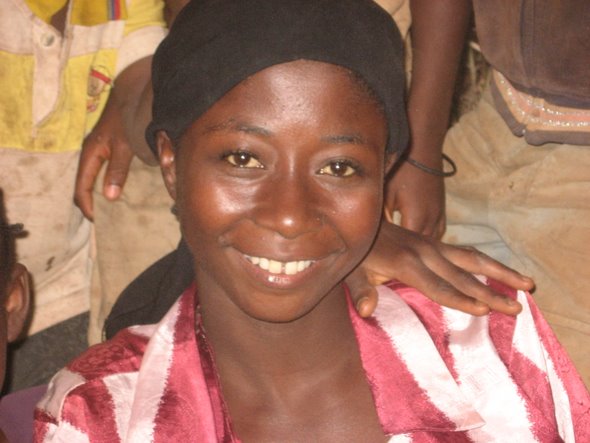My days were winding down fast toward the end of my time in Kiganza and it suddenly seemed like there was so much to do before leaving (which is rarely really the case, but it’s amazing how much extra you can create for yourself when there’s a deadline – I’ve always worked better that way as my parents and colleagues and friends and dogs and … well, everyone knows!).
One of my big projects and the most important I’m sure, was wrapping up a little idea called the Kiganza Children’s Education Fund. The idea came to me and Lucas once upon many of our hours together. It was always so disheartening to me to know how few children attended secondary school (relative to the number of children in the village) because their family simply could not afford it. For a child to attend Form 1 and 4, the cost is around $100USD per year because for the first and last years there are exam fees and other extra costs. For Form 2 and 3 the cost is only about $20USD per year, which is extremely manageable … for me! For these people, it’s still a steep expense in their life when their monthly income if they’re lucky can reach $30, but often hovers much lower – especially for those who march great distances to sell fruit or vegetables in neighboring villages, often coming home with only a few hundred shillings profit (equivalent of a few dollars).
With Lucas, I talked about how easy it would be to donate the cost of a handful of Soy Vanilla Lattes (of course I didn’t use that example for him, but in my head I was picturing myself paying $4 minimum (with … or before tip) for a hot drink in the winter … too often now that I think how far $4 can go in some places – Ahhh, remember the days with the blonde curly headed diva from All in the Family with Archie Bunker … Sally Struthers, I believe … “For just one cup of coffee a day, you too can change the life of a small child in Africa”. Well now, thanks to the exorbitant prices of fancy coffees, you don’t have to forgo one a day, just one a week!) I’m losing track of myself on this thought train…
So, I posed to Lucas that if we could find a handful of children who show promise and need assistance, I would be glad to help out (perhaps with a little plea for help from friends – they would expect nothing less from me). So, Lucas did a little digging in his file of families (he’s a pro on knowing Kiganza village and the stories behind the families – although he often doesn’t know their names, we only need homes and faces to get started).
The first girl was chosen by me. Her name is Hindu. She is a lovely 14 year old girl, attending secondary school already. School matters so much to her that she works in her family’s farm on weekends to pay her own school fees. Why Hindu? She would show up out of nowhere to the Gazebo at GOSESO when I’d be having a song or dance circle with a group of local kids – and she would throw great questions at me – in English. I was delighted (my favorite adjective for this blog) with her English skills and finally asked if I could attend school with her one day. Back at GOSESO she seemed so tall because the usual suspects that I was spending my time with were between the ages of 2 and 10. But once I saw her in her uniform in her class, next to many boys and myself, she suddenly seemed so fragile and small. After school, she invited me into her home to meet her father. I was nervous.
She had already told me that her father was very sick. He had become very ill three years ago and can no longer sit, stand, talk or eat without assistance. I expected to see a grown man lying in a bed in a small room in the house. Instead, I stepped foot into the front door, and laying on a grass mat on the dirt floor in the front room was her father. He has wasted away, evidenced by his thighs – as small as my forearms. He was lying on the ground with a thin blanket over him, his eyes closed and I said “Jambo Baba. Nina rafiki Hindu” (Hello father, I’m Hindu’s friend). I sat next to him on the ground and put my hand in his. Instantly, without opening his eyes, he starting squeezing and releasing my fingers, while rubbing the back of my hand with his thumb – no other part of his body showing any signs of life, not even his face. Hindu sat next to me, telling me how her father had been a fisherman before this happened – “this” that no one seems to be able to identify or explain. Behind us, five small neighborhood children came in and were squatting in absolute silence behind me in the light of the open front door. Also squatting, but leaning against the wall next to the back door was Hindu’s mother – tired and overwhelmed by her responsibilities now, raising two young daughters and her husband. Her three older sons contribute as best they can, but each has moved on and married with his own children to support. Hindu tried to tell me that her father couldn’t hear me, but I knew that wasn’t true. I could feel him resisting my efforts to pull away and responding with squeezes when I addressed him. After a while, having visited with my frail new friend as long as I could stand without seriously losing it, I told Hindu I should go. That evening, I told Hindu and her family that she was the first of 5 that I would be sponsoring. I would pay her school fees until she finished and she had to promise me to study and remain committed to finishing secondary school. (Hindu below – the others to come) (**Update – her father passed away a couple of months after I left.)
The others stories aren’t as intense as this one as they are about children that I don’t know as well, but agreed with Lucas when he described their situations, that they certainly deserved help.
The second child we visited was Edina. Edina is a lovely girl of about 15 who just finished standard 7 and is ready to start secondary school. She passed her standard 7 exams, which is a challenge, but was resigned to pass on secondary school as her father, a very poor man, could not afford to send her. Her mother died a few years ago of a disease – another one touted to be witchcraft, thereby blurring the reality. When I met her, her energy and sweetness poured into me. I could visibly see her shoulders drop when Lucas and I told her that we want to help her go to secondary school. She said many thank you’s and wished that we have God’s blessings. She also agreed to keep up her studies and strive to finish so she can have more options later in life.
The third child was another girl, named Diana, who is a neighbor and friend of Edina. Her mother is so poor and has no husband. She walks such amazing distances daily to sell palm oil and bananas in Kigoma town, often coming home without a single sale as banana and palm oil are an oversaturated crop in the region. Diana was a little bit puzzled by the offer, not knowing why she had been chosen by this mzungu who didn’t know her. She was shy and grateful and also wished many blessings for us.
Finally, we visited the family that we donated the mosquito nets to a while back. This family with of 6 children and a mother (deceased father) touched me when I visited them the first time. The elder daughter is so beautiful and has this grace about her. She has already passed on her chance to go to secondary school and seems resigned to never attend. However, she has two brothers, Ismail and France, who are simultaneously in standard 7 this year, planning to take their exams in October. Pending their successful completion of these exams and entrance into Form 1, I’ll be helping both of them too. I told their beautiful sister, Beatrice, that if she changed her mind I would help her as well. She laughed, but I continued to prod and tease up until we parted with handshakes and smiles and at least I know I left her something to consider. Unfortunately, their mother was out in the farm when I told them so I was unable to share the news with her myself, but I know she’ll be immensely relieved.
The only hitch on all these cases is that in the midst of their crazy lives – working before and after school to help their single parents – they have little opportunity to study and excel. I just hope they all stick with it. They know that the conditions of the ‘scholarship’ are that the money comes from me to Lucas and then directly to the headmaster of their schools. In cases like these, if you give the family money directly, the money will never reach the schools because there are too many other pressing needs. I see education as an essential ingredient to combatting the poverty that is crippling developing countries, so while money would be nice – it wouldn’t have high returns. My new friend Barrett used a wise saying I’d heard before: Give a man a fish and he’ll eat for a day. Teach a man to fish and he’ll eat for a lifetime. So, I’m hoping this little investment will grow. Lucas and I are going to see how this works this year and add children if we have success in the fundraising department.
If anyone would like to contribute, most of you know how to reach me. If you randomly stumbled upon this blog and would like to help, visit the Project Wezesha website. Asante!




